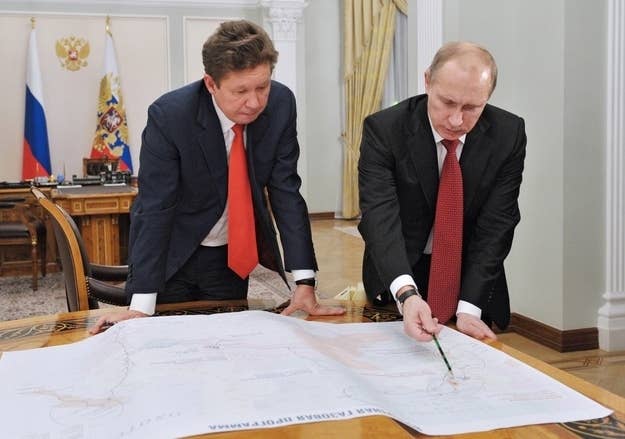
WASHINGTON — Croatia is leading the charge on Capitol Hill to support an energy bill that would seek to reduce Europe's dependence on Russia.
The central European country wants to be the entry point for U.S. natural gas into Europe, and it's been lobbying on the issue for more than a year. But with a mounting campaign on Capitol Hill to send more natural gas to the Europeans and push the Russians out of the market, the Croats find themselves at a confluence of economics and political crisis as they try to convince U.S. lawmakers to increase natural gas flow into the European Union. The EU has appeared unwilling to impose tough economic sanctions on Russia — partly due to its dependence on Russia's natural gas.
"The goal is not to prevent the Russian gas from being distributed to center Europe but to eliminate the monopoly and reduce the exclusive dependence on their natural gas," Croatian Ambassador Joško Paro said.
"Of course we are in favor of the American export for the simple reason that is the quantities that the U.S. as exporter can send to the European market, either via Croatia or other LNGs in Europe, would certainly create a beneficial pressure on the market, and would certainly temper the prices and would eliminate and reduce the dependence on the Russian gas," Paro said.
In response to the crisis in Ukraine, Rep. Mike Turner introduced a bill in the Energy and Commerce Committee this week that would expedite the permit process to export U.S. natural gas to countries inside the World Trade Organization.
"We have seen in Ukraine that Russia will use its energy resource dominance to expand its sphere of influence," Turner said in a statement. "Increasing U.S. natural gas exports will provide our allies with an alternative reliable source of energy, helping to strengthen their independence and creating jobs right here at home."
"We are certainly supporting all of the legislation initiative led by Representative Turner," Paro said. "All the countries of the center Europe, like Slovakia, Czech Republic, Hungary, are all highly dependent on Russian gas. We are not as much dependent as they are because we have our own sources of supply, but we certainly share the same interests in energy security with our neighbors."
Paro said that Croatia, which has a lobbying contract in Washington with Patton Boggs, was not using lobbyists for this effort, but said, "We are doing it by ourselves and also in coordination with our central European partners."
According to Paro, the Hungarians, Slovaks, Czechs, Poles, Slovenes, and the Baltic states are "all engaged on the bill with different intensity."
"From time to time we do coordinate our lobbying activities," he said.
Croatia's interest in the bill is more commercial than it is political, Paro said, but with the added bonus of sending a message to Russia in the midst of the Ukraine crisis.
"It is absolutely true that the present Ukrainian crisis is something that will probably give a positive spin to the efforts to liberalize the exports," he said. "So it is an interesting point that just a month before the crisis in Ukraine started, the PMs for Croatia, Hungary, and Ukraine were about to sign a trilateral agreement on the gas supply, which means that in perspective, the creation points or creation LNGs could also be an entry point for diversification of gas supply to Ukraine too via Hungary."
Paro said that some European countries were paying an extremely high price on Russian gas, but said, "You cannot blame the Russians to provide the only source of energy or source of gas. This is the reality."
Still, "The more you cooperate in commercial terms and the more there is a diversity in the supply, well, the less are the reasons for conflict," Paro said. "That's also very logical."
"The more gas the merrier," he continued.
Turner's bill, and others like it on Capitol Hill, has come under criticism from environmentalists and from other critics who say that the process would be too slow to make a difference anyway in the current Ukraine crisis.
